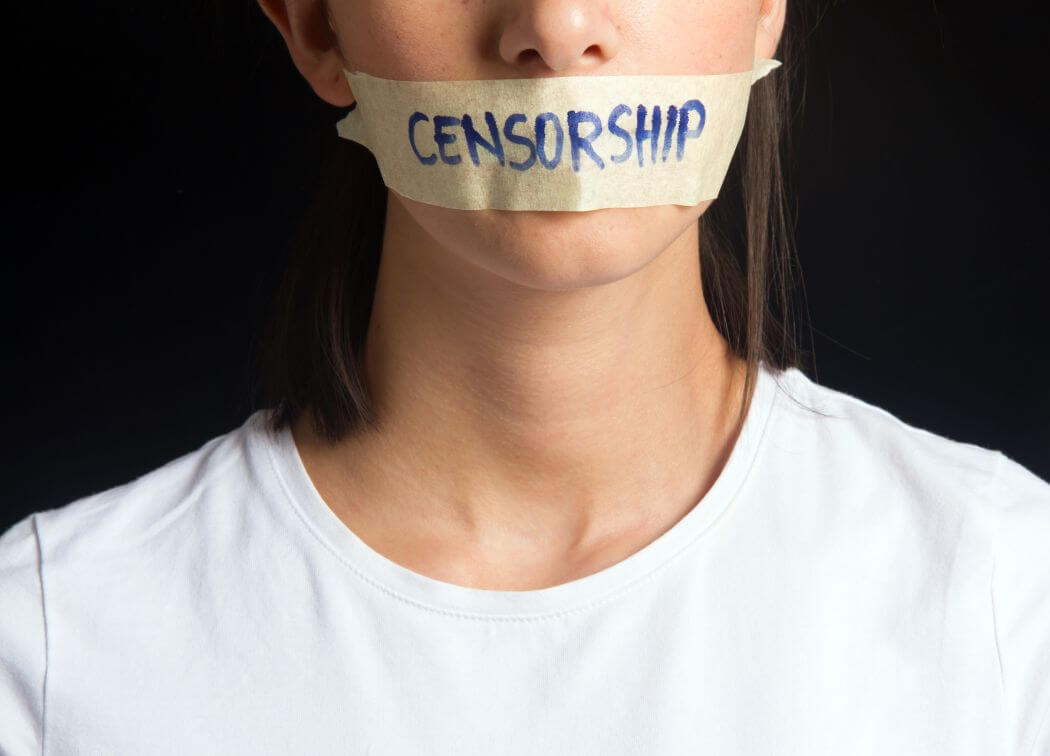A free internet – the concept that secures a user’s rights to maintain their privacy when browsing – is something that many countries and their leaders don’t agree with.
Ever since its origin, certain countries have prevented their inhabitants from accessing specific content; as well as made use of the opportunity to push their own political agendas in the process.
While it might not seem the case, censorship certainly has positives. It prevents users from being able to access extreme content like child pornography, and for those individuals who share and upload this content, ‘snooping charters’ – as they’ve been coined in the past – mean those people can be held to accounts too.

Authoritarian states like China and Russia; and more totalitarian states like North Korea; are all examples of countries who rely on censorship to keep their citizens in line with their regime. But the level of suppression they use extends beyond the internet.
All levels of public-access information, whether it be speech or the press, is state-sponsored or state-monitored, meaning the information you receive from the news is essentially what the government are allowing you to receive.
But while this doesn’t compute with the free-thinking ideals of western society, it may surprise you to know that countries like the UK and USA are known for policies that actively contradict internet freedoms.
The UK especially would argue that their hands have been forced due to a recent spate of terrorist attacks. That, and ever-difficult-to-detect illicit activity like what occurs through Tor sites; such as illegal weapons and drugs sales.
And only until recently did we discover, thanks to Edward Snowden, that the NSA has been intercepting the internet communications of Americans for years.
Freedom of speech is a luxury many take for granted, and forms of protest against a government’s censorship regime can be severe. In the UK, for example, people can openly object and criticize a government’s decision through the form of protest. In countries like China and North Korea, this behavior would likely earn you a prison sentence for treason; or worse, depending on the individual.
What Sort of Content do they Block?
The content that these countries block varies greatly – as do the reasons why they block them in the first place. Not all governments employ censorship as a means to push nationalized propaganda – some take a heavier hand as it’s a chance to prevent abhorrent crimes.
Either way, below we’ve mentioned just some of the types of websites and applications that are unavailable in many countries.
Streaming
Websites like YouTube and Dailymotion provide a platform for people to express opinion – the sort of activity some governments fear can lead to civil and political unease.
While the only countries that have an active block are China, Iran and North Korea, there’s a history of YouTube censorship throughout the world – including in places like Finland and Russia.
News
While the government in the UK provide public-funded news through the BBC, it still remains free press. They have no input editorially.
The media in countries like China and Vietnam is largely state owned – so their editorial input goes deep. The locations with the most news censorship also happen to be the ones who put the most journalists behind bars as a form of harassment – or for objecting to their ideals.
Networking/Communication
Apps like WhatsApp offer end-to-end encryption for calls, text messages, voice recordings, images and videos. As this can’t be monitored, stricter locations keep it firmly blocked.
And as for social media sites like Facebook and Twitter; arguably some of the best ways to communicate, promote your business, and express yourself; a lot of governments want to keep it locked down.
That’s why they offer their own alternatives – to maintain control and allow people to still access these functions, so as not to cause civil unrest.
Search Engines
Even Google, a simple-to-use and highly popular search engine, is blocked in China. As a result, Google has made many of its business services inaccessible – like Gmail and Maps.
A fundamental reason for China not allowing people to access it is simply because they can’t control it. While Google censors content daily, and blacklists material that falls into certain categories, where it draws the line on censorship is different to where China draws it.
Just like social-networking sites, Both China and Russia offer their own search engines – named Baidu and Yandex respectively.
How can People in Censored Countries Access Geo-Restricted Content?
People in strict countries around the world are using VPNs to bypass restrictions on their internet freedom. A VPN (Virtual Private Network) adds a secure line of defense when connecting to both public and private networks.
By routing all DNS requests through the VPN before the ISP, it keeps your movement on the web encrypted and untraceable.
But VPNs aren’t just used for anonymity – through them, users can access the content that their government doesn’t want them to. By taking an IP address linked to the UK, for example, your device is essentially fooled into thinking you’re currently browsing from the UK.
The level of encryption, combined with the IP relocating aspect, work in complete symbiosis to offer a highly dependable tool for everyone. Websites like YouTube, Google and Twitter are at user disposal – but only when using a VPN. To understand which VPN protocol is best for you, click here.
It’s not just those affected by strict censorship that use a VPN. Geo-restrictions on on-demand services like Netflix and Prime Video can be side-stepped using a VPN, so they’re highly popular for this reason too.
People who can already access these sites may want to receive the content exclusive to the States or the UK, for example. Click here to learn more about the reasons why people use VPNs.